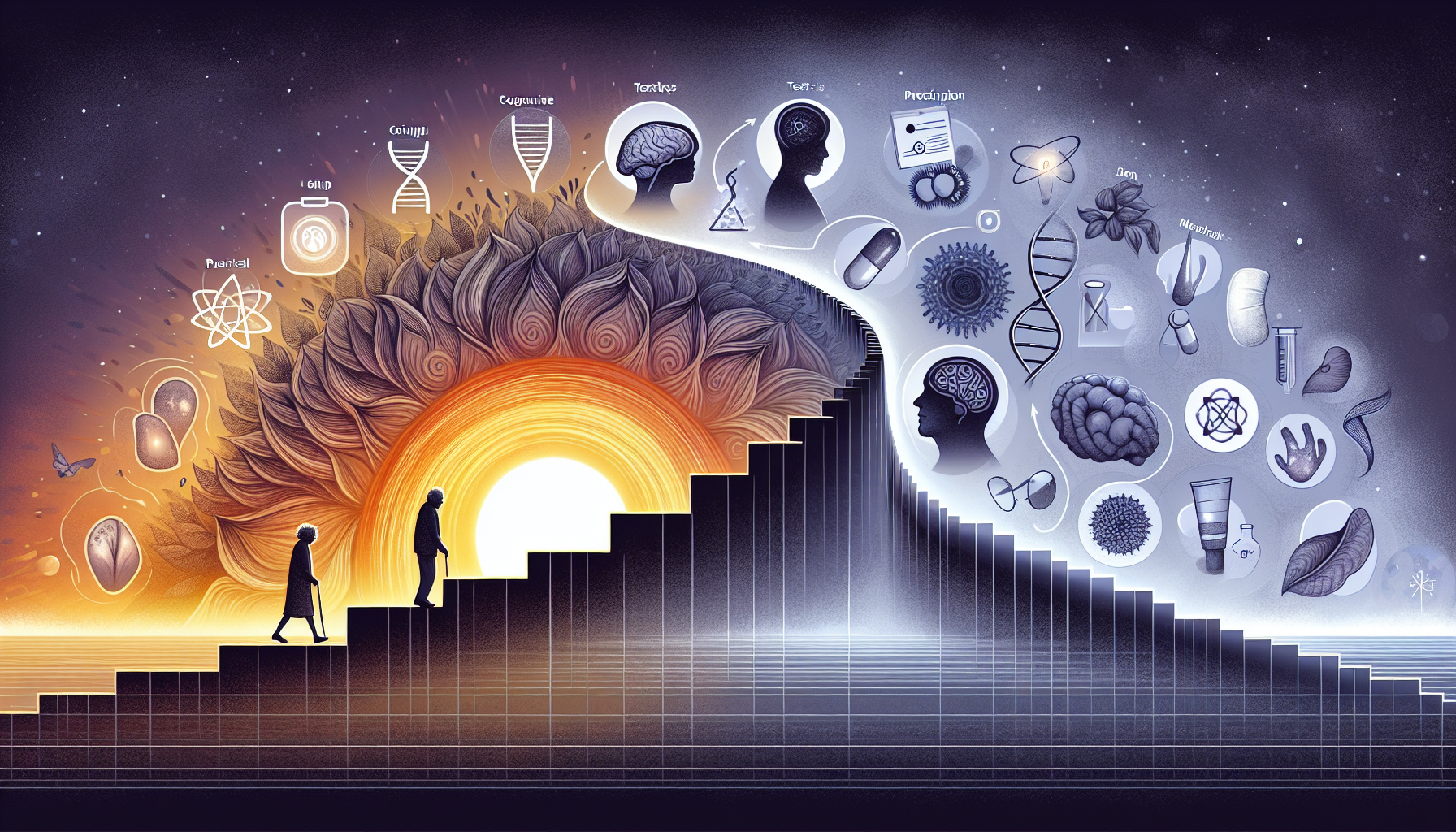When Alzheimer's Hits Early: A Personal Tale of an Uncommon Struggle
Have you ever felt like you've seen a movie before, only to later realize you watched it just last month? Imagine this confusion persisting into daily life and gradually becoming more severe. This is the story of Fraser, a 41-year-old from Australia who faced such a scenario and was diagnosed with early-onset Alzheimer's. This anomaly in age-related conditions reveals much about both the human condition and the research challenges surrounding Alzheimer's disease. Let's delve into his journey and explore what early-onset Alzheimer's means for the broader community.
Understanding Early-Onset Alzheimer's
Most people think of Alzheimer's as a disease that affects the elderly, but early-onset Alzheimer's can strike as early as in one's 30s or 40s. Fraser was confronted with the harsh reality of Alzheimer's in his late 30s, much earlier than the typical onset age of 65, making his case particularly unique and concerning.
Unlike the more common late-onset Alzheimer's, which is often linked to genetic predispositions and older age, early-onset Alzheimer's raises different concerns. It can be especially disruptive, affecting individuals during their prime years of career and family life, potentially carrying genetic implications for their children. This rapid decline in cognitive functions such as memory, decision-making, and attention can significantly impact one's quality of life and alter the dynamics within a family.
The First Signs: When Ordinary Becomes Extraordinary
For Fraser, the first signs of Alzheimer's crept in subtly. Imagine watching a movie, only to find out that you've already seen it a month prior. This was Fraser's experience when his wife pointed out a film they had watched together, which he was excitedly experiencing for the 'first time.'
Such instances of forgetfulness are often dismissed as mere absent-mindedness. However, for those encountering early-onset Alzheimer's, these lapses grow in frequency and severity. For Fraser, what began as minor forgetfulness soon spiraled into more troubling issues—difficulty processing thoughts, maintaining focus, and experiencing a significant decline in problem-solving abilities.
A Turning Point: Realizing the Need for Help
Often, it takes a significant event to realize there's a deeper problem at play. For Fraser, this wake-up call came one evening when his daughter was out late. His escalating anxiety led him to repeatedly call her and even inquire with neighbors, entirely forgetting the girl's pre-planned and communicated trip to the cinema with friends.
This incident starkly highlighted the gravity of Fraser's cognitive decline. Realizing that these episodes were more than just typical forgetfulness, Fraser sought medical advice, leading to his diagnosis of early-onset Alzheimer's. This journey underscores the importance of recognizing abnormal patterns in cognitive behavior and seeking timely intervention.
Living with the Diagnosis: Day-to-Day Challenges
Receiving an Alzheimer's diagnosis is life-changing. From managing day-to-day activities to maintaining a semblance of normalcy, individuals face numerous hurdles. Fraser's encounters with the disease illustrate these challenges vividly.
He reported feeling like his mind was shrouded in a persistent fog, with even routine tasks becoming daunting. Simple actions, like remembering to turn off a faucet, became feats of concentration. Planning family activities required meticulous effort, and unexpected changes in schedules were difficult to accommodate without significant distress.
The Emotional and Social Impact
Fraser's story is not just about dealing with a personal health challenge, but also about understanding the emotional and social turmoil that accompanies it. His diagnosis has undoubtedly altered family dynamics, not only putting emotional stress on him but also on his loved ones.
Support from family becomes crucial, yet it brings its own set of challenges. Roles within the family may shift, with partners and children assuming caregiving responsibilities. This redistribution of roles can impact family relationships and individual mental health. Fraser's experience highlights the need for strong support systems for individuals with dementia-related diagnoses and their families.
Raising Awareness and Encouraging Research
Fraser's early-onset Alzheimer's diagnosis shines a light on the critical need for awareness and research into Alzheimer's variants. His case underscores the importance of early detection, providing a platform for discussions about Alzheimer's research, early diagnostics, and effective management strategies.
While Alzheimer's is widely recognized, the variants affecting younger populations require more scientific and public attention. Effective treatments for early-onset Alzheimer's remain elusive, but stories like Fraser's can help galvanize research efforts. They inspire advocacy for funding and resources to support affected individuals and their families, aiming for breakthroughs that can alleviate their burdens.
Conclusion: A Call to Action
Fraser's narrative is a poignant reminder of the unpredictable nature of Alzheimer's disease and the profound impact it has on individuals and families alike. Understanding, empathy, and proactive involvement in Alzheimer's research can lead to meaningful change. As we reflect on Fraser's story, consider this: What can each of us do to contribute to a better understanding and support for those living with Alzheimer's? Your involvement, however small, could make a significant difference.
Through continued awareness, research, and support, we can hope for better outcomes for people like Fraser, ensuring that no one has to navigate the complexities of Alzheimer's alone. What part will you play in this critical journey towards understanding and mitigating Alzheimer's?

